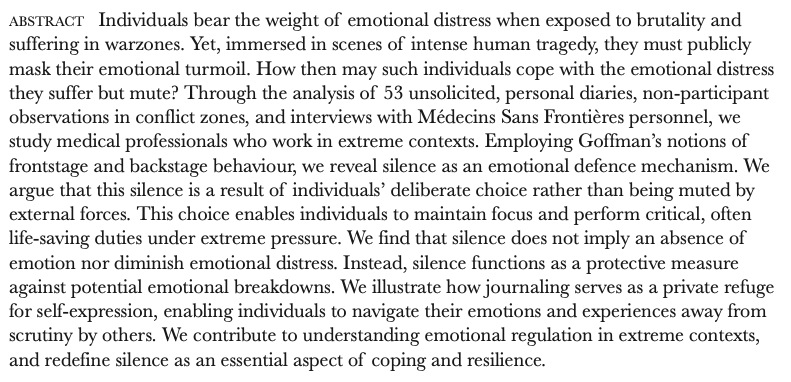“My heart is dying here. I’m mad, sad, tired. It’s just fucked up”.
In their recent paper, part of the forthcoming Journal of Management Studies special issue on “Organizing and Strategizing in and for Extreme Contexts: Temporality, Embodiment, Materiality”, Madeleine Rauch and Shahzad Ansari provide an insightful analysis of how medical professionals exposed to extreme contexts use silence as an emotional defense mechanism. Their study draws on personal diaries written by members of Médecins Sans Frontières (Doctors Without Borders) to capture the thoughts and feelings of those directly exposed to human trauma.

Madelaine Rauch and Shahzad Ansari’s study provides us with some interesting insights into how medical professionals exposed to human trauma deal with their emerging emotions. In contrast to existing work that emphasizes silence as a form of emotional suppression (or even absence of emotion), Rauch & Ansari conclude that silence instead functions as an emotional defense mechanism that actors use to manage their emotional distress. Their analysis shows that the diaries written by the medical professionals were not merely a tool for data collection, but were used by MSF members as a coping mechanism. Journaling provided them with an outlet for the unfiltered expression of their emotions.
You can access the paper via the following Link!
Source of the picture: https://www.swr.de/swrkultur/wissen/1712922411868%2Caerzte-ohne-grenzen-104~_v-16×9@2dL_-6c42aff4e68b43c7868c3240d3ebfa29867457da.jpg
